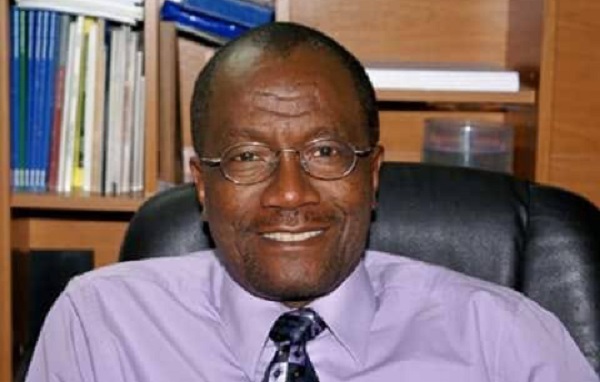Central Bank Governor, Professor Kelfala has explained the reasons why the Bank of Sierra Leone decided to re-denominate the nation’s currency (the Leone), placing a new family of currency notes and coins into circulation as legal tender and eventually call in the existing currency at a date that will be announced pursuant to Section 27(4) of the Bank of Sierra Leone Act, 2019.
Redenomination, he stated, is bound to create genuine concerns and confusion. Therefore, the Bank of Sierra Leone recognizes its duty to fully sensitize the people of this country about the new family of notes and coins in the redenominated currency before they are introduced.
He explained that the leadership of the Bank started this sensitization drive immediately after his August 11, 2021 announcement of the redenomination programme.
To date, the Bank has held informational meetings with key stakeholders, including the leadership of the Sierra Leone Bar Association, where the rationale for redenomination and a general blueprint of how it will be implemented were discussed.
Soon, the Bank will embark on a nationwide public education campaign to fully educate the average Sierra Leonean about the redenomination of the currency.
Simply put, redenomination is a recalibration of a nation’s currency by dividing it by a constant. In our case, that constant is 1,000, which is equivalent to removing three zeroes from the currency.
To keep the real value of assets that are denominated in the Old Leone constant, all prices that are denominated in it shall be similarly divided by 1,000 in order to get their equivalence in the New Leone.
Governor Kelfala said that there will be a transition period of not less than 90 days during which the two currencies shall be legal tender. During that period, the prices of goods and services shall be displayed in both the New and Old Leones. Thereafter, the Old Leone shall cease to be legal tender and all prices shall then be set in the New Leone.
Also, on the day the New Leones come into circulation, all contracts, debts, and other agreements that are denominated in Old Leones shall be automatically converted into New Leones.
During the parallel run period, deposits and payments can be made in Old Leones but withdrawals and change shall only be made in New Leones. At the end of the parallel run period, all Old Leones in the hands of the public shall cease to be legal tender and therefore not usable in transactions in this country.
Governor Kelfala noted that this is not the first time the currency of Sierra Leone has been redenominated. The first was when the British West African Pound, which was legal tender in the British West African colonies (Gambia, Ghana, Nigeria, and Sierra Leone), was converted into Leones and cents in 1964.
Why Re-denominate now?
According to the Governor, the current currency regime imposes several significant deadweight losses on the economy. Firstly, the huge quantity of banknotes needed to conduct simple transactions imposes huge transaction costs on economic activity.
Additionally, the costs borne by economic agents (households, businesses, and Government agencies) in counting and storing large volumes of cash is also not trivial.
These costs are compounded by the increasing costs of bookkeeping, the strain on the payment system, as evidenced by our crowded banking halls, long lines at Automatic Teller Machines (ATMs), and the general risk of theft.
Moreover, the inconvenience customers will incur from counting huge stacks of currency when they withdraw cash from their bank accounts, as well as the high possibility that doing so will attract the attention of thieves lurking around in banking halls, has created tremendous incentives for unscrupulous bank tellers to pilfer notes out of sealed bundles, thereby opening the financial system to the possibility of losing its most important asset—which is the public’s trust.
Businesses, he said, have also been taking advantage of the public when they round-off prices to the next thousand Leones.
For example, when a consumer presents 9,000 Leones to purchase something priced at 8,500 Leones, merchants essentially force customers to pay 9,000 Leones by claiming to have no change.
The cumulative effect of this has been tremendous “theft” by businesses—just because the currency is so debased that prices are set in the thousands of it.
By minting and circulating a whole new family of coins, in an adequate quantity, redenomination will bring much needed respite to the public from such scams.
(C) The Calabash Newspaper











